MedicalResearch.com Interview with:
Michael K. Scullin, Ph.D.
Assistant Professor of Psychology and Neuroscience
Director, Sleep Neuroscience and Cognition Laboratory
Baylor University
Waco, TX 76798
MedicalResearch.com: What is the background for this study? What are the main findings?
Response: There is a gap between what health behaviors individuals know they should adopt, and what those individuals actually end up doing. For example, a growing literature shows that simply educating students on the importance of sleep does not change their sleep behaviors. Thus, we need to think outside of the box for solutions.
In three classes, we have now investigated a motivational solution: if students can earn extra credit on their final exam for sleeping better, will they do so even during finals week?
(more…)
Author Interviews, Menopause, Sleep Disorders / 15.11.2018
Surgical Menopause Linked To More Insomnia and Sleep Difficulties
MedicalResearch.com Interview with:
Sooyeon Suh, PhD
Department of Psychology
Sungshin University
Seoul, Republic of Korea
MedicalResearch.com: What is the background for this study? What are the main findings?
Response: Women who are going through menopause frequently complain of sleep complaints and depressive symptoms in addition to other typical symptoms such as hot flashes and night sweats. Two of the most common ways of becoming menopausal are through natural menopause and surgical menopause. While natural menopause is usually experienced in the course of aging, surgical menopause is usually induced by OBGYN surgery such as bilateral oopherectomy, often as a result of illnesses such as ovarian cancer.
Many studies have found that women who experience surgical menopause often experience more psychological and physical difficulties compared to women who transition through menopause naturally due to a more acute drop in estrogen following surgery, it sometimes leads to the need for practices like Advanced Gynecology to help manage the symptoms. Unfortunately, in clinical settings, women who undergo surgical menopause are not provided with additional psychoeducation or customized treatment to address these issues.
The main findings of these studies support these issues. In 526 postmenopausal women, women who went through surgical menopause reported significantly worse sleep quality an shorter sleep duration. Additionally, they had a 2.13 times higher likelihood of having insomnia that warranted treatment.
Finally, even though women who went through surgical menopause engaged in the same sleep-interfering behaviors (e.g., drinking caffeine, drinking alcohol before bed, watching TV in bed, etc) as women who went through menopause naturally, their sleep was impacted more negatively. (more…)
Author Interviews, BMJ, Obstructive Sleep Apnea, Pediatrics, Sleep Disorders, Surgical Research / 09.11.2018
Tonsillectomy Often Done When Not Indicated (and vice versa!)
MedicalResearch.com Interview with:
Tom Marshall, MSc, PhD, MRCGP, FFPH
Professor of public health and primary care
Institute of Applied Health Research
University of Birmingham, Birmingham, UK
MedicalResearch.com: What is the background for this study?
Response: Tonsillectomy is one of the most common childhood surgical procedures. There are two main indications: recurrent sore throat and sleep-related breathing problems (including obstructive sleep apnoea).
Jack Paradise’s 1984 study made clear tonsillectomy is modestly effective in children with frequent, severe sore throats: seven in one year, or five yearly in two successive years, or three yearly in three successive years. Sore throats must have symptoms: fever, pus seen on tonsils, lymphadenopathy or confirmed Streptococcal infection. With surgery, children average two sore throats in the next year, without surgery, three. Two years later there is no difference. Further research shows the benefits are too tiny to justify surgery in children with less frequent, less severe or undocumented sore throats. Subsequent randomised controlled trials have not changed the evidence. There isn’t enough good evidence to support surgery in children with obstructive sleep apnoea or sleep related breathing problems.
Tonsillectomy is not a trivial procedure, about 2% are readmitted with haemorrhage and about 1 in 40,000 dies. Childhood tonsillectomy is linked to risk of adult autoimmune diseases. It is important to be sure tonsillectomy is only undertaken in children where there are evidence-based indications.
(more…)
Author Interviews, Obstructive Sleep Apnea / 22.10.2018
Obstructive Sleep Apnea: Short Apneas Linked To Increased Mortality
MedicalResearch.com Interview with:
 Matthew P Butler, PhD
Assistant Professor, Oregon Institute of Occupational Health Sciences
Assistant Professor, Department of Behavioral Neuroscience
Oregon Health & Science University
Portland, OR 97239
MedicalResearch.com: What is the background for this study? What are the main findings?
Response: Obstructive sleep apnea (OSA) is associated with heart disease and mortality, but how OSA does this is not well understood. We are therefore looking for sub-phenotypes within OSA that will help us predict who is at greatest risk.
Current diagnosis of OSA is made on the basis of the apnea-hypopnea index (AHI – the number of respiratory events per hour of sleep). But the AHI is not a very good predictor of future mortality.
We tested the hypothesis that the duration of events (how long the breathing interruptions are) would predict risk. We found that those with the shortest breathing interruptions had the highest risk of dying, after accounting for other conditions like age, gender, race, and smoking status. (more…)
Matthew P Butler, PhD
Assistant Professor, Oregon Institute of Occupational Health Sciences
Assistant Professor, Department of Behavioral Neuroscience
Oregon Health & Science University
Portland, OR 97239
MedicalResearch.com: What is the background for this study? What are the main findings?
Response: Obstructive sleep apnea (OSA) is associated with heart disease and mortality, but how OSA does this is not well understood. We are therefore looking for sub-phenotypes within OSA that will help us predict who is at greatest risk.
Current diagnosis of OSA is made on the basis of the apnea-hypopnea index (AHI – the number of respiratory events per hour of sleep). But the AHI is not a very good predictor of future mortality.
We tested the hypothesis that the duration of events (how long the breathing interruptions are) would predict risk. We found that those with the shortest breathing interruptions had the highest risk of dying, after accounting for other conditions like age, gender, race, and smoking status. (more…)
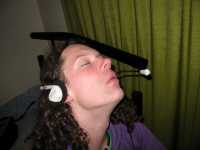 Matthew P Butler, PhD
Assistant Professor, Oregon Institute of Occupational Health Sciences
Assistant Professor, Department of Behavioral Neuroscience
Oregon Health & Science University
Portland, OR 97239
MedicalResearch.com: What is the background for this study? What are the main findings?
Response: Obstructive sleep apnea (OSA) is associated with heart disease and mortality, but how OSA does this is not well understood. We are therefore looking for sub-phenotypes within OSA that will help us predict who is at greatest risk.
Current diagnosis of OSA is made on the basis of the apnea-hypopnea index (AHI – the number of respiratory events per hour of sleep). But the AHI is not a very good predictor of future mortality.
We tested the hypothesis that the duration of events (how long the breathing interruptions are) would predict risk. We found that those with the shortest breathing interruptions had the highest risk of dying, after accounting for other conditions like age, gender, race, and smoking status. (more…)
Matthew P Butler, PhD
Assistant Professor, Oregon Institute of Occupational Health Sciences
Assistant Professor, Department of Behavioral Neuroscience
Oregon Health & Science University
Portland, OR 97239
MedicalResearch.com: What is the background for this study? What are the main findings?
Response: Obstructive sleep apnea (OSA) is associated with heart disease and mortality, but how OSA does this is not well understood. We are therefore looking for sub-phenotypes within OSA that will help us predict who is at greatest risk.
Current diagnosis of OSA is made on the basis of the apnea-hypopnea index (AHI – the number of respiratory events per hour of sleep). But the AHI is not a very good predictor of future mortality.
We tested the hypothesis that the duration of events (how long the breathing interruptions are) would predict risk. We found that those with the shortest breathing interruptions had the highest risk of dying, after accounting for other conditions like age, gender, race, and smoking status. (more…)
Author Interviews, Kidney Disease, Neurology, Sleep Disorders / 01.09.2018
Insights into Neurobiology of Restless Legs Syndrome
MedicalResearch.com Interview with:
Rachel Marie E. Salas, MD, MEHP, FAAN
Associate Professor, Neurology and Nursing at Johns Hopkins Medicine
Director, Interprofessional Education and Interprofessional Collaborative Practice
Director, Neurology Clerkship
Director, PreDoc Program Meyer/Neuro Sleep
Baltimore, MD
MedicalResearch.com: What is the background for this study? Can you briefly describe what is meant by RLS and who suffers from it?
Response: Restless Legs Syndrome (RLS) is a common neurological disorder characterized by an irritating, overwhelming urge to move (akathisia) the legs while at rest or sleep (conditions of diminished arousal), which almost immediately abates with mental or physical activity (conditions of maintained arousal).
One of the most clinically-profound and scientifically relevant consequences of this disease process is an increased arousal state producing significant wake during sleep times and a relative sustainable degree of daytime alertness despite the degree of diseased-imposed sleep loss. The focus of most previous RLS research has been on the (limb) akathisia with associated periodic movements and reduction of these with dopaminergic treatment. Little research has been done to understand the broader biological dimensions of RLS. Patients with RLS have altered sleep-wake homeostasis with increased arousal and wakefulness (hyperarousal) not only driving the signature clinical symptoms (“the urge to move” and sleep loss) but also supporting arousal over sleep drive at night and in the day. We hypothesize that there is a basic glutamate-hyperarousal process producing both disrupted sleep (increased wake time) and cortical excitability (as demonstrated by transcranial magnetic stimulation (TMS)). (more…)
Author Interviews, Gout, Obstructive Sleep Apnea, Rheumatology / 30.08.2018
People With Sleep Apnea At Increased Risk of Gout
MedicalResearch.com Interview with:
Dr M Blagojevic-Bucknal
Senior Lecturer in Statistics Arthritis Research UK Primary Care Centre
Research Institute for Primary Care & Health Sciences
Keele University Staffordshire UK
MedicalResearch.com: What is the background for this study?
Response: Evidence suggests that elevated serum uric acid levels, the cause of gout, are also frequently identified in patients with sleep apnoea However, despite prevalent hyperuricaemia in patients with sleep apnoea, shared risk factors with gout of obesity and alcohol consumption, and research identifying the associations between gout and other co-morbidities, few studies have considered the possibility of an association between sleep apnoea and gout in short and long term.
(more…)
Author Interviews, Memory, Pediatrics, Sleep Disorders / 22.08.2018
Children Need Both Naps and Overnight Sleep to Process Emotional Memories
MedicalResearch.com Interview with:
Dr. Rebecca Spencer PhD
Associate Professor
Department of Psychological and Brain Sciences
University of Massachusetts
MedicalResearch.com: What is the background for this study? What are the main findings?
Response: We know that in young adults, sleep contributes to emotion processing. We wondered if naps work similarly for preschool children. To look at this, we had children learn an emotional memory task and then either take a nap or stay awake. We then tested their memory after that interval and again the next day.
We found that when children napped, they had better memory for those items the next day than if they did not nap. That the naps seem to support memory (even if in a delayed fashion) seems consistent with the observation of parents and preschool teachers that children are often emotionally dysregulated if they do not nap.
(more…)
Author Interviews, NYU, Sexual Health, Sleep Disorders / 11.07.2018
Bisexual Adults Have Highest Prevalence of Sleep Problems in NYC Survey
MedicalResearch.com Interview with:
Dustin T. Duncan, ScD
Associate Professor
Director, NYU Spatial Epidemiology Lab
Department of Population Health
NYU School of Medicine
NYU Langone Health
MedicalResearch.com: What is the background for this study?
Response: Sleep and sleep hygiene have emerged as one of the major determinants of health and wellbeing (alongside good diet, regular exercise, and not smoking). However, a small number of studies have used population-representative samples to examine sexual orientation disparities in sleep. Our study aimed to fill this gap in knowledge.
(more…)
Alzheimer's - Dementia, Author Interviews, Obstructive Sleep Apnea, Sleep Disorders / 07.07.2018
Structural Brain Changes in Sleep Apnea Linked to Cognitive Decline
MedicalResearch.com Interview with:
 Nathan E. Cross PhD, first author
School of Psychology.
Sharon L. Naismith, PhD, senior author
Leonard P Ullman Chair in Psychology
Brain and Mind Centre
Neurosleep, NHMRC Centre of Research Excellence
The University of Sydney, Australia
MedicalResearch.com: What is the background for this study? What are the main findings?
Response: Between 30 to 50% of the risk for dementia is due to modifiable risk factors such depression, hypertension, physical inactivity, obesity, diabetes and smoking.
In recent years, multiple longitudinal cohort studies have observed a link between sleep apnoea and a greater risk (1.85 to 2.6 times more likely) of developing cognitive decline and dementia. Furthermore, one study in over 8000 people also indicated that the presence of obstructive sleep apnoea (OSA) in older adults was associated with an earlier age of cognitive decline, and that treatment of OSA may delay the onset of cognitive impairment.
This study reveals important insights into how sleep disorders such as OSA may impact the brain in older adults, as it is associated with widespread structural alterations in diverse brain regions. We found that reduced blood oxygen levels during sleep are related to reduced thickness of the brain's cortex in both the left and right temporal areas - regions that are important in memory and are early sites of injury in Alzheimer's disease. Indeed, reduced thickness in these regions was associated with poorer ability to learn new information, thereby being the first to link this structural change to memory decline. (more…)
Nathan E. Cross PhD, first author
School of Psychology.
Sharon L. Naismith, PhD, senior author
Leonard P Ullman Chair in Psychology
Brain and Mind Centre
Neurosleep, NHMRC Centre of Research Excellence
The University of Sydney, Australia
MedicalResearch.com: What is the background for this study? What are the main findings?
Response: Between 30 to 50% of the risk for dementia is due to modifiable risk factors such depression, hypertension, physical inactivity, obesity, diabetes and smoking.
In recent years, multiple longitudinal cohort studies have observed a link between sleep apnoea and a greater risk (1.85 to 2.6 times more likely) of developing cognitive decline and dementia. Furthermore, one study in over 8000 people also indicated that the presence of obstructive sleep apnoea (OSA) in older adults was associated with an earlier age of cognitive decline, and that treatment of OSA may delay the onset of cognitive impairment.
This study reveals important insights into how sleep disorders such as OSA may impact the brain in older adults, as it is associated with widespread structural alterations in diverse brain regions. We found that reduced blood oxygen levels during sleep are related to reduced thickness of the brain's cortex in both the left and right temporal areas - regions that are important in memory and are early sites of injury in Alzheimer's disease. Indeed, reduced thickness in these regions was associated with poorer ability to learn new information, thereby being the first to link this structural change to memory decline. (more…)
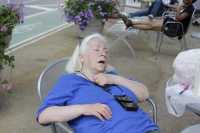 Nathan E. Cross PhD, first author
School of Psychology.
Sharon L. Naismith, PhD, senior author
Leonard P Ullman Chair in Psychology
Brain and Mind Centre
Neurosleep, NHMRC Centre of Research Excellence
The University of Sydney, Australia
MedicalResearch.com: What is the background for this study? What are the main findings?
Response: Between 30 to 50% of the risk for dementia is due to modifiable risk factors such depression, hypertension, physical inactivity, obesity, diabetes and smoking.
In recent years, multiple longitudinal cohort studies have observed a link between sleep apnoea and a greater risk (1.85 to 2.6 times more likely) of developing cognitive decline and dementia. Furthermore, one study in over 8000 people also indicated that the presence of obstructive sleep apnoea (OSA) in older adults was associated with an earlier age of cognitive decline, and that treatment of OSA may delay the onset of cognitive impairment.
This study reveals important insights into how sleep disorders such as OSA may impact the brain in older adults, as it is associated with widespread structural alterations in diverse brain regions. We found that reduced blood oxygen levels during sleep are related to reduced thickness of the brain's cortex in both the left and right temporal areas - regions that are important in memory and are early sites of injury in Alzheimer's disease. Indeed, reduced thickness in these regions was associated with poorer ability to learn new information, thereby being the first to link this structural change to memory decline. (more…)
Nathan E. Cross PhD, first author
School of Psychology.
Sharon L. Naismith, PhD, senior author
Leonard P Ullman Chair in Psychology
Brain and Mind Centre
Neurosleep, NHMRC Centre of Research Excellence
The University of Sydney, Australia
MedicalResearch.com: What is the background for this study? What are the main findings?
Response: Between 30 to 50% of the risk for dementia is due to modifiable risk factors such depression, hypertension, physical inactivity, obesity, diabetes and smoking.
In recent years, multiple longitudinal cohort studies have observed a link between sleep apnoea and a greater risk (1.85 to 2.6 times more likely) of developing cognitive decline and dementia. Furthermore, one study in over 8000 people also indicated that the presence of obstructive sleep apnoea (OSA) in older adults was associated with an earlier age of cognitive decline, and that treatment of OSA may delay the onset of cognitive impairment.
This study reveals important insights into how sleep disorders such as OSA may impact the brain in older adults, as it is associated with widespread structural alterations in diverse brain regions. We found that reduced blood oxygen levels during sleep are related to reduced thickness of the brain's cortex in both the left and right temporal areas - regions that are important in memory and are early sites of injury in Alzheimer's disease. Indeed, reduced thickness in these regions was associated with poorer ability to learn new information, thereby being the first to link this structural change to memory decline. (more…)
Accidents & Violence, Author Interviews, Sleep Disorders / 07.07.2018
Why Does Driving Make Us Sleepy?
MedicalResearch.com Interview with:
 Prof. Stephen R Robinson PhD
Discipline Leader, Psychology
School of Health and Biomedical Sciences
RMIT University
Australia
MedicalResearch.com: What is the background for this study?
Response: Around the world, driver drowsiness and fatigue are estimated to contribute to 250,000 deaths on the road per year. Current research in this area has focused on detecting when drivers become drowsy, by examining their eye movements or steering patterns, and then alerting the driver with a warning tone or vibration of the steering wheel. Rather than this reactive approach, we are interested in helping to prevent drivers from becoming drowsy in the first place.
(more…)
Prof. Stephen R Robinson PhD
Discipline Leader, Psychology
School of Health and Biomedical Sciences
RMIT University
Australia
MedicalResearch.com: What is the background for this study?
Response: Around the world, driver drowsiness and fatigue are estimated to contribute to 250,000 deaths on the road per year. Current research in this area has focused on detecting when drivers become drowsy, by examining their eye movements or steering patterns, and then alerting the driver with a warning tone or vibration of the steering wheel. Rather than this reactive approach, we are interested in helping to prevent drivers from becoming drowsy in the first place.
(more…)
 Prof. Stephen R Robinson PhD
Discipline Leader, Psychology
School of Health and Biomedical Sciences
RMIT University
Australia
MedicalResearch.com: What is the background for this study?
Response: Around the world, driver drowsiness and fatigue are estimated to contribute to 250,000 deaths on the road per year. Current research in this area has focused on detecting when drivers become drowsy, by examining their eye movements or steering patterns, and then alerting the driver with a warning tone or vibration of the steering wheel. Rather than this reactive approach, we are interested in helping to prevent drivers from becoming drowsy in the first place.
(more…)
Prof. Stephen R Robinson PhD
Discipline Leader, Psychology
School of Health and Biomedical Sciences
RMIT University
Australia
MedicalResearch.com: What is the background for this study?
Response: Around the world, driver drowsiness and fatigue are estimated to contribute to 250,000 deaths on the road per year. Current research in this area has focused on detecting when drivers become drowsy, by examining their eye movements or steering patterns, and then alerting the driver with a warning tone or vibration of the steering wheel. Rather than this reactive approach, we are interested in helping to prevent drivers from becoming drowsy in the first place.
(more…)
Author Interviews, Melatonin, Sleep Disorders / 15.06.2018
REMfresh® Study (CRA-melatonin™) Advances Use of Melatonin for Sleep Complaints
MedicalResearch.com Interview with:
David C. Brodner, M.D.
Founder and Principle Physician, The Center for Sinus, Allergy, and Sleep Wellness
Double Board-Certified in Otolaryngology (Head and Neck Surgery) and Sleep Medicine
Assistant Clinical Professor, Florida Atlantic University College of Medicine
Medical Director, Good Samaritan Hospital Sleep Laboratory
Senior Medical Advisor, Physician’s Seal, LLC®
MedicalResearch.com: What is the background for this study?
Response: Melatonin is produced by the pineal gland in the brain and is the body’s natural sleep ingredient. Melatonin levels normally begin to rise in the mid-to late evening and remain high for the majority of the night. Levels begin to decline towards early morning, as the body’s wake cycle is triggered. Research shows that as people age, melatonin levels can drop by as much as 70 percent and their bodies may no longer produce enough melatonin to ensure adequate sleep.
Other available products, such as immediate-release melatonin, help initiate the onset of sleep but are usually unable to sustain prolonged sleep maintenance due to an immediate burst of melatonin, which is quickly degraded due to its relatively short half-life (60 minutes). Absorption in the lower digestive tract is limited by melatonin’s limited ability to be absorbed in a low acidity or neutral pH environment.
This post-marketing REMfresh® Patient Reported Outcomes DURation (REMDUR) study was designed to obtain real-world evidence about patients’ sleep patterns, duration of sleep before and after REMfresh® (CRA-melatonin™), daily REMfresh® (CRA-melatonin™) use, onset of action, sleep maintenance, quality of sleep, and overall satisfaction with REMfresh® (CRA-melatonin™). Patients with sleep disturbances in the general population who received a sample of CRA-melatonin™ (REMfresh®) from their physicians were invited to complete a 12-question survey. Survey responses were received from 500 patients.
(more…)
Abuse and Neglect, Allergies, Education, Pediatrics, Sleep Disorders / 30.05.2018
Allergic Rhinitis Can Impair Adolescent Sleep and School Performance
MedicalResearch.com Interview with:
Michael S. Blaiss, MD, FACAAI
Executive Medical Director
American College of Allergy, Asthma & Immunology
Arlington Heights, IL 60005
MedicalResearch.com: Is this research important? Why or why not?
Response: There has not been a comprehensive review of how allergic rhinitis impacts the adolescent population. Most studies put adolescents in with children and yet we know that how disease affects adolescents may be dramatically different than children. Adolescents is a difficult enough time with a chronic condition
MedicalResearch.com: What is the key take-home message?
Response: The symptoms associated with nasal and eye allergies can be different in adolescents compared with adults and children and lead to poor quality of life and impair learning in school. Adolescents with AR/ARC may experience difficulties falling asleep, night waking, and snoring, and generally have poorer sleep. Therefore health care providers need to aggressively control the adolescent’s allergic rhinitis. (more…)
Author Interviews, JAMA, Obstructive Sleep Apnea, Sexual Health, Sleep Disorders / 30.05.2018
CPAP Improved Sexual Quality of Life for Women
MedicalResearch.com Interview with: [caption id="attachment_38315" align="alignleft" width="200"] One CPAP modelImage by Bryan Alexander[/caption] Sebastian M. Jara, MD Resident Physician & Research Fellow Department of...
Author Interviews, Endocrinology, Sleep Disorders, Testosterone, Urology / 23.05.2018
Decreased Sleep Associated With Lower Testosterone Levels
MedicalResearch.com Interview with:
 Premal Patel, MD, PGY-5
Urology
University of Manitoba
MedicalResearch.com: What is the background for this study? What are the main findings? What should readers take away from your report?
Response: Within the literature there has only been small experimental studies which looked at impaired sleep and testosterone. To our knowledge, there has been no study that has evaluated sleep and testosterone using a population dataset. We utilized the National Health and Nutrition Examination Survey to assess the association of sleep with serum testosterone. NHANES examines a nationally representative sample of about ~5000 persons each year.
After performing a multivariate linear regression of numerous variables within the NHANES database (age, marital status, prior co-morbidities, number of hours of sleep, etc…) we found that a reduction in the number of hours slept, increasing body mass index and increasing age were associated with lower testosterone levels.
Given that this is a cross-sectional analysis, we are unable to provide causality of this relationship but we do feel it is important to counsel patients with low testosterone about the importance of living a healthy lifestyle which includes a well-balanced diet, exercise and sufficient sleep.
(more…)
Premal Patel, MD, PGY-5
Urology
University of Manitoba
MedicalResearch.com: What is the background for this study? What are the main findings? What should readers take away from your report?
Response: Within the literature there has only been small experimental studies which looked at impaired sleep and testosterone. To our knowledge, there has been no study that has evaluated sleep and testosterone using a population dataset. We utilized the National Health and Nutrition Examination Survey to assess the association of sleep with serum testosterone. NHANES examines a nationally representative sample of about ~5000 persons each year.
After performing a multivariate linear regression of numerous variables within the NHANES database (age, marital status, prior co-morbidities, number of hours of sleep, etc…) we found that a reduction in the number of hours slept, increasing body mass index and increasing age were associated with lower testosterone levels.
Given that this is a cross-sectional analysis, we are unable to provide causality of this relationship but we do feel it is important to counsel patients with low testosterone about the importance of living a healthy lifestyle which includes a well-balanced diet, exercise and sufficient sleep.
(more…)
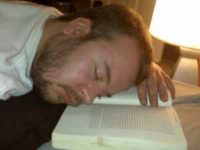 Premal Patel, MD, PGY-5
Urology
University of Manitoba
MedicalResearch.com: What is the background for this study? What are the main findings? What should readers take away from your report?
Response: Within the literature there has only been small experimental studies which looked at impaired sleep and testosterone. To our knowledge, there has been no study that has evaluated sleep and testosterone using a population dataset. We utilized the National Health and Nutrition Examination Survey to assess the association of sleep with serum testosterone. NHANES examines a nationally representative sample of about ~5000 persons each year.
After performing a multivariate linear regression of numerous variables within the NHANES database (age, marital status, prior co-morbidities, number of hours of sleep, etc…) we found that a reduction in the number of hours slept, increasing body mass index and increasing age were associated with lower testosterone levels.
Given that this is a cross-sectional analysis, we are unable to provide causality of this relationship but we do feel it is important to counsel patients with low testosterone about the importance of living a healthy lifestyle which includes a well-balanced diet, exercise and sufficient sleep.
(more…)
Premal Patel, MD, PGY-5
Urology
University of Manitoba
MedicalResearch.com: What is the background for this study? What are the main findings? What should readers take away from your report?
Response: Within the literature there has only been small experimental studies which looked at impaired sleep and testosterone. To our knowledge, there has been no study that has evaluated sleep and testosterone using a population dataset. We utilized the National Health and Nutrition Examination Survey to assess the association of sleep with serum testosterone. NHANES examines a nationally representative sample of about ~5000 persons each year.
After performing a multivariate linear regression of numerous variables within the NHANES database (age, marital status, prior co-morbidities, number of hours of sleep, etc…) we found that a reduction in the number of hours slept, increasing body mass index and increasing age were associated with lower testosterone levels.
Given that this is a cross-sectional analysis, we are unable to provide causality of this relationship but we do feel it is important to counsel patients with low testosterone about the importance of living a healthy lifestyle which includes a well-balanced diet, exercise and sufficient sleep.
(more…)
MedicalResearch.com Interview with:
 Dr Denholm Aspy PhD
School of Psychology
University of Adelaide
MedicalResearch.com: What is the background for this study? What are the main findings?
Response: There are many anecdotal reports of vitamin B6 being used to enhance dream recall, and poor dream has sometimes been considered a possible sign of vitamin B6 deficiency by some clinicians. However, until now there was only a single study that investigated this scientifically. This was a small pilot study in 2002 that included only 12 participants. My new study now provides the strongest evidence to date that vitamin B6 does in fact enhance dream recall. The double-blind placebo-controlled study included 100 participants from around Australia who took either Vitamin B6, a B vitamin complex (with a range of other B vitamins as well), or placebo directly before bed for five days. Participants recorded their dream recall using a logbook containing a range of measures each morning. Results showed the people who took B6 recalled around 64% more content from their dreams on average compared to the placebo group, and that this had no negative impact on sleep quality.
(more…)
Dr Denholm Aspy PhD
School of Psychology
University of Adelaide
MedicalResearch.com: What is the background for this study? What are the main findings?
Response: There are many anecdotal reports of vitamin B6 being used to enhance dream recall, and poor dream has sometimes been considered a possible sign of vitamin B6 deficiency by some clinicians. However, until now there was only a single study that investigated this scientifically. This was a small pilot study in 2002 that included only 12 participants. My new study now provides the strongest evidence to date that vitamin B6 does in fact enhance dream recall. The double-blind placebo-controlled study included 100 participants from around Australia who took either Vitamin B6, a B vitamin complex (with a range of other B vitamins as well), or placebo directly before bed for five days. Participants recorded their dream recall using a logbook containing a range of measures each morning. Results showed the people who took B6 recalled around 64% more content from their dreams on average compared to the placebo group, and that this had no negative impact on sleep quality.
(more…)
 Dr Denholm Aspy PhD
School of Psychology
University of Adelaide
MedicalResearch.com: What is the background for this study? What are the main findings?
Response: There are many anecdotal reports of vitamin B6 being used to enhance dream recall, and poor dream has sometimes been considered a possible sign of vitamin B6 deficiency by some clinicians. However, until now there was only a single study that investigated this scientifically. This was a small pilot study in 2002 that included only 12 participants. My new study now provides the strongest evidence to date that vitamin B6 does in fact enhance dream recall. The double-blind placebo-controlled study included 100 participants from around Australia who took either Vitamin B6, a B vitamin complex (with a range of other B vitamins as well), or placebo directly before bed for five days. Participants recorded their dream recall using a logbook containing a range of measures each morning. Results showed the people who took B6 recalled around 64% more content from their dreams on average compared to the placebo group, and that this had no negative impact on sleep quality.
(more…)
Dr Denholm Aspy PhD
School of Psychology
University of Adelaide
MedicalResearch.com: What is the background for this study? What are the main findings?
Response: There are many anecdotal reports of vitamin B6 being used to enhance dream recall, and poor dream has sometimes been considered a possible sign of vitamin B6 deficiency by some clinicians. However, until now there was only a single study that investigated this scientifically. This was a small pilot study in 2002 that included only 12 participants. My new study now provides the strongest evidence to date that vitamin B6 does in fact enhance dream recall. The double-blind placebo-controlled study included 100 participants from around Australia who took either Vitamin B6, a B vitamin complex (with a range of other B vitamins as well), or placebo directly before bed for five days. Participants recorded their dream recall using a logbook containing a range of measures each morning. Results showed the people who took B6 recalled around 64% more content from their dreams on average compared to the placebo group, and that this had no negative impact on sleep quality.
(more…)
Alzheimer's - Dementia, Author Interviews, NIH, PNAS, Sleep Disorders / 19.04.2018
Sleep Deprivation Leads to Build Up of Junk Amyloid in Brain
MedicalResearch.com Interview with:
Nora D. Volkow MD
Senior Investigator
Laboratory of Neuroimaging, National Institute on Alcohol Abuse and Alcoholism
National Institutes of Health, Bethesda, MD 20892
MedicalResearch.com: What is the background for this study? What are the main findings?
Response: Findings from animal studies had shown that sleep deprivation increased the content of beta-amyloid in brain, which is a risk factor for Alzheimer’s disease. We wanted to test whether this also happened in the human brain after one night of sleep deprivation. We found that indeed one night of sleep deprivation led to an accumulation of beta amyloid in the human brain, which suggest that one of the reasons why we sleep is to help clean our brain of degradation products that if not removed are toxic to brain cells. (more…)
Author Interviews, Sleep Disorders / 12.04.2018
Night Owls Risk Dying Early
MedicalResearch.com Interview with:
 Kristen L. Knutson, PhD
Associate Professor
Center for Circadian and Sleep Medicine
Department of Neurology
Northwestern University Feinberg School of Medicine
Chicago, IL 60611
MedicalResearch.com: What is the background for this study? What are the main findings?
Response: Previous research has shown that “night owls” (people who prefer the evening) have higher rates of diseases such as diabetes or high blood pressure. We wanted to determine whether mortality risk was also higher in night owls. We used data from the UK Biobank of almost a half million people who were asked whether they were morning or evening types.
We found that the night owls had a 10% increased risk of dying over a 6 ½ year period compared to the morning types, even after taking into account existing health problems.
(more…)
Kristen L. Knutson, PhD
Associate Professor
Center for Circadian and Sleep Medicine
Department of Neurology
Northwestern University Feinberg School of Medicine
Chicago, IL 60611
MedicalResearch.com: What is the background for this study? What are the main findings?
Response: Previous research has shown that “night owls” (people who prefer the evening) have higher rates of diseases such as diabetes or high blood pressure. We wanted to determine whether mortality risk was also higher in night owls. We used data from the UK Biobank of almost a half million people who were asked whether they were morning or evening types.
We found that the night owls had a 10% increased risk of dying over a 6 ½ year period compared to the morning types, even after taking into account existing health problems.
(more…)
 Kristen L. Knutson, PhD
Associate Professor
Center for Circadian and Sleep Medicine
Department of Neurology
Northwestern University Feinberg School of Medicine
Chicago, IL 60611
MedicalResearch.com: What is the background for this study? What are the main findings?
Response: Previous research has shown that “night owls” (people who prefer the evening) have higher rates of diseases such as diabetes or high blood pressure. We wanted to determine whether mortality risk was also higher in night owls. We used data from the UK Biobank of almost a half million people who were asked whether they were morning or evening types.
We found that the night owls had a 10% increased risk of dying over a 6 ½ year period compared to the morning types, even after taking into account existing health problems.
(more…)
Kristen L. Knutson, PhD
Associate Professor
Center for Circadian and Sleep Medicine
Department of Neurology
Northwestern University Feinberg School of Medicine
Chicago, IL 60611
MedicalResearch.com: What is the background for this study? What are the main findings?
Response: Previous research has shown that “night owls” (people who prefer the evening) have higher rates of diseases such as diabetes or high blood pressure. We wanted to determine whether mortality risk was also higher in night owls. We used data from the UK Biobank of almost a half million people who were asked whether they were morning or evening types.
We found that the night owls had a 10% increased risk of dying over a 6 ½ year period compared to the morning types, even after taking into account existing health problems.
(more…)
Aging, Author Interviews, Circadian Rhythm, Sleep Disorders / 29.03.2018
As We Age, Our Circadian Clock Becomes Less Sensitive To Light, Leading To Sleep Problems
MedicalResearch.com Interview with:
 Dr Gurprit S. Lall BSc, MSc, PhD, PGCHE, FHEA
Medway School of Pharmacy
Interim Deputy Head of School
Senior Lecturer in Pharmacology
Director of Graduate Studies (Research),
University of Kent at Medway
Chatham Maritime, Chatham, Kent
MedicalResearch.com: What is the background for this study? What are the main findings?
Response: Medical advancement in prevention and diagnosis of disease has increased life expectancy significantly, thus generating an ageing population far greater than previously seen. Because of this, it is essential that we begin to understand the ageing process, together with the health implications associated with senescence. Recent research has found that changes in the circadian clock, located in the brain, play a contributing role in the decline of many physiological and behavioural traits observed through the ageing process. One example of this, which is commonly seen in the elderly is a decline in sleep-wake cycle regulation; typically presenting as disrupted sleeping patterns.
The circadian clock, in mammals, possesses the ability to integrate our social lifestyle choices with the environmental day-night cycle to generate a 24-hour rhythm to which our physiological functions are synchronised. It is this synchronisation that plays a vital role in regulating many of our behavioural outputs, such as sleeping-wake patterns. This clock takes its strongest timing cue from the natural day night cycle governed by the duration of daily sunlight.
Our study investigated the changes in the interpretation of this light signal by the circadian clock as we age and its impact on function. We found that the clock became less responsive to light stimuli at both the level of clock cells and at driving behavioural activity. We were able to narrow this down to changes in the proteins within cells that relay light information to the molecular time setting machinery. In detail, light signals are relayed to the clock through an excitatory neurotransmitter called glutamate and this signal is predominantly relayed through NMDA receptors located on the surface of clock cells. It is the configuration of the NMDA receptor that alters as we age and this leads to the clock becoming less responsive to light.
(more…)
Dr Gurprit S. Lall BSc, MSc, PhD, PGCHE, FHEA
Medway School of Pharmacy
Interim Deputy Head of School
Senior Lecturer in Pharmacology
Director of Graduate Studies (Research),
University of Kent at Medway
Chatham Maritime, Chatham, Kent
MedicalResearch.com: What is the background for this study? What are the main findings?
Response: Medical advancement in prevention and diagnosis of disease has increased life expectancy significantly, thus generating an ageing population far greater than previously seen. Because of this, it is essential that we begin to understand the ageing process, together with the health implications associated with senescence. Recent research has found that changes in the circadian clock, located in the brain, play a contributing role in the decline of many physiological and behavioural traits observed through the ageing process. One example of this, which is commonly seen in the elderly is a decline in sleep-wake cycle regulation; typically presenting as disrupted sleeping patterns.
The circadian clock, in mammals, possesses the ability to integrate our social lifestyle choices with the environmental day-night cycle to generate a 24-hour rhythm to which our physiological functions are synchronised. It is this synchronisation that plays a vital role in regulating many of our behavioural outputs, such as sleeping-wake patterns. This clock takes its strongest timing cue from the natural day night cycle governed by the duration of daily sunlight.
Our study investigated the changes in the interpretation of this light signal by the circadian clock as we age and its impact on function. We found that the clock became less responsive to light stimuli at both the level of clock cells and at driving behavioural activity. We were able to narrow this down to changes in the proteins within cells that relay light information to the molecular time setting machinery. In detail, light signals are relayed to the clock through an excitatory neurotransmitter called glutamate and this signal is predominantly relayed through NMDA receptors located on the surface of clock cells. It is the configuration of the NMDA receptor that alters as we age and this leads to the clock becoming less responsive to light.
(more…)
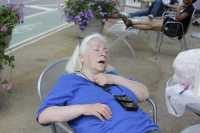 Dr Gurprit S. Lall BSc, MSc, PhD, PGCHE, FHEA
Medway School of Pharmacy
Interim Deputy Head of School
Senior Lecturer in Pharmacology
Director of Graduate Studies (Research),
University of Kent at Medway
Chatham Maritime, Chatham, Kent
MedicalResearch.com: What is the background for this study? What are the main findings?
Response: Medical advancement in prevention and diagnosis of disease has increased life expectancy significantly, thus generating an ageing population far greater than previously seen. Because of this, it is essential that we begin to understand the ageing process, together with the health implications associated with senescence. Recent research has found that changes in the circadian clock, located in the brain, play a contributing role in the decline of many physiological and behavioural traits observed through the ageing process. One example of this, which is commonly seen in the elderly is a decline in sleep-wake cycle regulation; typically presenting as disrupted sleeping patterns.
The circadian clock, in mammals, possesses the ability to integrate our social lifestyle choices with the environmental day-night cycle to generate a 24-hour rhythm to which our physiological functions are synchronised. It is this synchronisation that plays a vital role in regulating many of our behavioural outputs, such as sleeping-wake patterns. This clock takes its strongest timing cue from the natural day night cycle governed by the duration of daily sunlight.
Our study investigated the changes in the interpretation of this light signal by the circadian clock as we age and its impact on function. We found that the clock became less responsive to light stimuli at both the level of clock cells and at driving behavioural activity. We were able to narrow this down to changes in the proteins within cells that relay light information to the molecular time setting machinery. In detail, light signals are relayed to the clock through an excitatory neurotransmitter called glutamate and this signal is predominantly relayed through NMDA receptors located on the surface of clock cells. It is the configuration of the NMDA receptor that alters as we age and this leads to the clock becoming less responsive to light.
(more…)
Dr Gurprit S. Lall BSc, MSc, PhD, PGCHE, FHEA
Medway School of Pharmacy
Interim Deputy Head of School
Senior Lecturer in Pharmacology
Director of Graduate Studies (Research),
University of Kent at Medway
Chatham Maritime, Chatham, Kent
MedicalResearch.com: What is the background for this study? What are the main findings?
Response: Medical advancement in prevention and diagnosis of disease has increased life expectancy significantly, thus generating an ageing population far greater than previously seen. Because of this, it is essential that we begin to understand the ageing process, together with the health implications associated with senescence. Recent research has found that changes in the circadian clock, located in the brain, play a contributing role in the decline of many physiological and behavioural traits observed through the ageing process. One example of this, which is commonly seen in the elderly is a decline in sleep-wake cycle regulation; typically presenting as disrupted sleeping patterns.
The circadian clock, in mammals, possesses the ability to integrate our social lifestyle choices with the environmental day-night cycle to generate a 24-hour rhythm to which our physiological functions are synchronised. It is this synchronisation that plays a vital role in regulating many of our behavioural outputs, such as sleeping-wake patterns. This clock takes its strongest timing cue from the natural day night cycle governed by the duration of daily sunlight.
Our study investigated the changes in the interpretation of this light signal by the circadian clock as we age and its impact on function. We found that the clock became less responsive to light stimuli at both the level of clock cells and at driving behavioural activity. We were able to narrow this down to changes in the proteins within cells that relay light information to the molecular time setting machinery. In detail, light signals are relayed to the clock through an excitatory neurotransmitter called glutamate and this signal is predominantly relayed through NMDA receptors located on the surface of clock cells. It is the configuration of the NMDA receptor that alters as we age and this leads to the clock becoming less responsive to light.
(more…)
MedicalResearch.com Interview with:
 Julia F. van den Berg, PhD
Leiden University, Department of Clinical Psychology
Leiden, The Netherlands
MedicalResearch.com: What is the background for this study? What are the main findings?
Response: Caffeine is the most used psychoactive substance worldwide, mostly consumed via coffee, energy drinks, tea and chocolate. Experimental studies have shown that caffeine can negatively affect sleep quality. The timing of caffeine consumption may play a role; the closer to bedtime, the more caffeine consumption is likely to have a negative effect on sleep. We also wondered if chronotype, being a morning or evening person, would make a difference in the effect of caffeine on sleep.
We sent out questionnaires on sleep quality, chronotype, and a detailed questionnaire on type and timing of caffeine use to 880 secondary education students (mean age 21.3 years). We found that for the entire group, the amount of caffeine per week was not associated with sleep quality, regardless of chronotype. However, when we divided the group into subgroups of students who did, and students who did not usually consume caffeine in the evening (after 6PM), we found something interesting. Only for students who did not consume caffeine in the evening (20% of the total sample), a higher total caffeine consumption per week was associated with poorer sleep, in spite of the fact that these students consumed a lot less caffeine per week than the group who did consume caffeine in the evening.
This suggests a self-regulatory mechanism: students who know they are sensitive to caffeine do not drink it in the evening, nevertheless, the caffeinated beverages they drink during the day do affect their sleep.
(more…)
Julia F. van den Berg, PhD
Leiden University, Department of Clinical Psychology
Leiden, The Netherlands
MedicalResearch.com: What is the background for this study? What are the main findings?
Response: Caffeine is the most used psychoactive substance worldwide, mostly consumed via coffee, energy drinks, tea and chocolate. Experimental studies have shown that caffeine can negatively affect sleep quality. The timing of caffeine consumption may play a role; the closer to bedtime, the more caffeine consumption is likely to have a negative effect on sleep. We also wondered if chronotype, being a morning or evening person, would make a difference in the effect of caffeine on sleep.
We sent out questionnaires on sleep quality, chronotype, and a detailed questionnaire on type and timing of caffeine use to 880 secondary education students (mean age 21.3 years). We found that for the entire group, the amount of caffeine per week was not associated with sleep quality, regardless of chronotype. However, when we divided the group into subgroups of students who did, and students who did not usually consume caffeine in the evening (after 6PM), we found something interesting. Only for students who did not consume caffeine in the evening (20% of the total sample), a higher total caffeine consumption per week was associated with poorer sleep, in spite of the fact that these students consumed a lot less caffeine per week than the group who did consume caffeine in the evening.
This suggests a self-regulatory mechanism: students who know they are sensitive to caffeine do not drink it in the evening, nevertheless, the caffeinated beverages they drink during the day do affect their sleep.
(more…)
 Julia F. van den Berg, PhD
Leiden University, Department of Clinical Psychology
Leiden, The Netherlands
MedicalResearch.com: What is the background for this study? What are the main findings?
Response: Caffeine is the most used psychoactive substance worldwide, mostly consumed via coffee, energy drinks, tea and chocolate. Experimental studies have shown that caffeine can negatively affect sleep quality. The timing of caffeine consumption may play a role; the closer to bedtime, the more caffeine consumption is likely to have a negative effect on sleep. We also wondered if chronotype, being a morning or evening person, would make a difference in the effect of caffeine on sleep.
We sent out questionnaires on sleep quality, chronotype, and a detailed questionnaire on type and timing of caffeine use to 880 secondary education students (mean age 21.3 years). We found that for the entire group, the amount of caffeine per week was not associated with sleep quality, regardless of chronotype. However, when we divided the group into subgroups of students who did, and students who did not usually consume caffeine in the evening (after 6PM), we found something interesting. Only for students who did not consume caffeine in the evening (20% of the total sample), a higher total caffeine consumption per week was associated with poorer sleep, in spite of the fact that these students consumed a lot less caffeine per week than the group who did consume caffeine in the evening.
This suggests a self-regulatory mechanism: students who know they are sensitive to caffeine do not drink it in the evening, nevertheless, the caffeinated beverages they drink during the day do affect their sleep.
(more…)
Julia F. van den Berg, PhD
Leiden University, Department of Clinical Psychology
Leiden, The Netherlands
MedicalResearch.com: What is the background for this study? What are the main findings?
Response: Caffeine is the most used psychoactive substance worldwide, mostly consumed via coffee, energy drinks, tea and chocolate. Experimental studies have shown that caffeine can negatively affect sleep quality. The timing of caffeine consumption may play a role; the closer to bedtime, the more caffeine consumption is likely to have a negative effect on sleep. We also wondered if chronotype, being a morning or evening person, would make a difference in the effect of caffeine on sleep.
We sent out questionnaires on sleep quality, chronotype, and a detailed questionnaire on type and timing of caffeine use to 880 secondary education students (mean age 21.3 years). We found that for the entire group, the amount of caffeine per week was not associated with sleep quality, regardless of chronotype. However, when we divided the group into subgroups of students who did, and students who did not usually consume caffeine in the evening (after 6PM), we found something interesting. Only for students who did not consume caffeine in the evening (20% of the total sample), a higher total caffeine consumption per week was associated with poorer sleep, in spite of the fact that these students consumed a lot less caffeine per week than the group who did consume caffeine in the evening.
This suggests a self-regulatory mechanism: students who know they are sensitive to caffeine do not drink it in the evening, nevertheless, the caffeinated beverages they drink during the day do affect their sleep.
(more…)
Author Interviews, CDC, Education, Pediatrics, Sleep Disorders / 26.01.2018
Majority of Middle and High School Students Do Not Get Enough Sleep on School Nights
MedicalResearch.com Interview with:
 Anne G. Wheaton, Ph.D.
Epidemiologist
Centers for Disease Control and Prevention
National Center for Chronic Disease Prevention and Health Promotion
Division of Population Health
Epidemiology and Surveillance Branch
Atlanta, GA 30341-3717
MedicalResearch.com: What is the background for this study?
Response: Insufficient sleep among children and adolescents is associated with an increased risk for obesity, diabetes, injuries, poor mental health, and attention and behavior problems.
In previous reports, CDC had found that, nationwide, approximately two thirds of U.S. high school students report sleeping <8 hours per night on school nights. CDC conducted this study to provide state-level estimates of short sleep duration on school nights among middle school and high school students using age-specific recommendations from the American Academy of Sleep Medicine (AASM). AASM has recommended that children aged 6–12 years should regularly sleep 9–12 hours per 24 hours and teenagers aged 13–18 years should sleep 8–10 hours per 24 hours for optimal health.
(more…)
Anne G. Wheaton, Ph.D.
Epidemiologist
Centers for Disease Control and Prevention
National Center for Chronic Disease Prevention and Health Promotion
Division of Population Health
Epidemiology and Surveillance Branch
Atlanta, GA 30341-3717
MedicalResearch.com: What is the background for this study?
Response: Insufficient sleep among children and adolescents is associated with an increased risk for obesity, diabetes, injuries, poor mental health, and attention and behavior problems.
In previous reports, CDC had found that, nationwide, approximately two thirds of U.S. high school students report sleeping <8 hours per night on school nights. CDC conducted this study to provide state-level estimates of short sleep duration on school nights among middle school and high school students using age-specific recommendations from the American Academy of Sleep Medicine (AASM). AASM has recommended that children aged 6–12 years should regularly sleep 9–12 hours per 24 hours and teenagers aged 13–18 years should sleep 8–10 hours per 24 hours for optimal health.
(more…)
 Anne G. Wheaton, Ph.D.
Epidemiologist
Centers for Disease Control and Prevention
National Center for Chronic Disease Prevention and Health Promotion
Division of Population Health
Epidemiology and Surveillance Branch
Atlanta, GA 30341-3717
MedicalResearch.com: What is the background for this study?
Response: Insufficient sleep among children and adolescents is associated with an increased risk for obesity, diabetes, injuries, poor mental health, and attention and behavior problems.
In previous reports, CDC had found that, nationwide, approximately two thirds of U.S. high school students report sleeping <8 hours per night on school nights. CDC conducted this study to provide state-level estimates of short sleep duration on school nights among middle school and high school students using age-specific recommendations from the American Academy of Sleep Medicine (AASM). AASM has recommended that children aged 6–12 years should regularly sleep 9–12 hours per 24 hours and teenagers aged 13–18 years should sleep 8–10 hours per 24 hours for optimal health.
(more…)
Anne G. Wheaton, Ph.D.
Epidemiologist
Centers for Disease Control and Prevention
National Center for Chronic Disease Prevention and Health Promotion
Division of Population Health
Epidemiology and Surveillance Branch
Atlanta, GA 30341-3717
MedicalResearch.com: What is the background for this study?
Response: Insufficient sleep among children and adolescents is associated with an increased risk for obesity, diabetes, injuries, poor mental health, and attention and behavior problems.
In previous reports, CDC had found that, nationwide, approximately two thirds of U.S. high school students report sleeping <8 hours per night on school nights. CDC conducted this study to provide state-level estimates of short sleep duration on school nights among middle school and high school students using age-specific recommendations from the American Academy of Sleep Medicine (AASM). AASM has recommended that children aged 6–12 years should regularly sleep 9–12 hours per 24 hours and teenagers aged 13–18 years should sleep 8–10 hours per 24 hours for optimal health.
(more…)
Author Interviews, Pediatrics, Sleep Disorders, Technology / 24.01.2018
Only An Hour Of Daily Social Media Linked To Decreased Sleep in Adolescents
MedicalResearch.com Interview with:
 Jean-Philippe Chaput, Ph.D.
Associate Professor of Pediatrics, University of Ottawa
Research Scientist, Healthy Active Living and Obesity Research Group
Children’s Hospital of Eastern Ontario Research Institute
Ontario, Canada
MedicalResearch.com: What is the background for this study? What are the main findings?
Response: No studies to date have examined the association between social media use (e.g., Facebook, Twitter, Instagram) and sleep duration in a representative sample of middle and high school students, who are a vulnerable age group that has reported high levels of social media use and insufficient sleep, writes Buzzoid.
Our findings suggest an important association between the use of social media and short sleep duration among student aged 11-20 years. Using social media for at least one hour per day was associated with short sleep duration in a dose-response manner. (more…)
Jean-Philippe Chaput, Ph.D.
Associate Professor of Pediatrics, University of Ottawa
Research Scientist, Healthy Active Living and Obesity Research Group
Children’s Hospital of Eastern Ontario Research Institute
Ontario, Canada
MedicalResearch.com: What is the background for this study? What are the main findings?
Response: No studies to date have examined the association between social media use (e.g., Facebook, Twitter, Instagram) and sleep duration in a representative sample of middle and high school students, who are a vulnerable age group that has reported high levels of social media use and insufficient sleep, writes Buzzoid.
Our findings suggest an important association between the use of social media and short sleep duration among student aged 11-20 years. Using social media for at least one hour per day was associated with short sleep duration in a dose-response manner. (more…)
 Jean-Philippe Chaput, Ph.D.
Associate Professor of Pediatrics, University of Ottawa
Research Scientist, Healthy Active Living and Obesity Research Group
Children’s Hospital of Eastern Ontario Research Institute
Ontario, Canada
MedicalResearch.com: What is the background for this study? What are the main findings?
Response: No studies to date have examined the association between social media use (e.g., Facebook, Twitter, Instagram) and sleep duration in a representative sample of middle and high school students, who are a vulnerable age group that has reported high levels of social media use and insufficient sleep, writes Buzzoid.
Our findings suggest an important association between the use of social media and short sleep duration among student aged 11-20 years. Using social media for at least one hour per day was associated with short sleep duration in a dose-response manner. (more…)
Jean-Philippe Chaput, Ph.D.
Associate Professor of Pediatrics, University of Ottawa
Research Scientist, Healthy Active Living and Obesity Research Group
Children’s Hospital of Eastern Ontario Research Institute
Ontario, Canada
MedicalResearch.com: What is the background for this study? What are the main findings?
Response: No studies to date have examined the association between social media use (e.g., Facebook, Twitter, Instagram) and sleep duration in a representative sample of middle and high school students, who are a vulnerable age group that has reported high levels of social media use and insufficient sleep, writes Buzzoid.
Our findings suggest an important association between the use of social media and short sleep duration among student aged 11-20 years. Using social media for at least one hour per day was associated with short sleep duration in a dose-response manner. (more…)
Author Interviews, Cancer Research, Sleep Disorders / 18.01.2018
Bright Light Exposure Improved Sleep In Cancer Patients
MedicalResearch.com Interview with: [caption id="attachment_39380" align="alignleft" width="160"] Dr. Lisa Wu[/caption] Lisa M. Wu, Ph.D. Assistant Professor Northwestern University Feinberg School of Medicine Department of Medical Social...
Author Interviews, OBGYNE, Sleep Disorders, UCSF / 03.01.2018
Program Improves Sleep For Mothers Hospitalized For Delivery
MedicalResearch.com Interview with:
 Kathryn A. Lee, RN, CBSM, PhD
Department of Family Health Care Nursing
University of California at San Francisco
San Francisco, California
MedicalResearch.com: What is the background for this study? What are the main findings?
Response: Sleep deprivation can adversely affect health and wellbeing in any patient population.
In pregnancy, adverse outcomes may include preterm birth, longer labor, cesarean birth, and depression.
We found that women with high-risk pregnancies were sleep deprived even prior to hospitalization. Our sample averaged 29 weeks gestation, and half reported getting only between 5 and 6.5 hours of sleep at home before hospital admission. Our sleep hygiene intervention strategies gave them more control over the environment in their hospital room, and they self-reported significantly better sleep than controls. Interestingly, both groups increased their sleep time to almost 7 hours at night, on average, in the hospital before they were discharged home.
(more…)
Kathryn A. Lee, RN, CBSM, PhD
Department of Family Health Care Nursing
University of California at San Francisco
San Francisco, California
MedicalResearch.com: What is the background for this study? What are the main findings?
Response: Sleep deprivation can adversely affect health and wellbeing in any patient population.
In pregnancy, adverse outcomes may include preterm birth, longer labor, cesarean birth, and depression.
We found that women with high-risk pregnancies were sleep deprived even prior to hospitalization. Our sample averaged 29 weeks gestation, and half reported getting only between 5 and 6.5 hours of sleep at home before hospital admission. Our sleep hygiene intervention strategies gave them more control over the environment in their hospital room, and they self-reported significantly better sleep than controls. Interestingly, both groups increased their sleep time to almost 7 hours at night, on average, in the hospital before they were discharged home.
(more…)
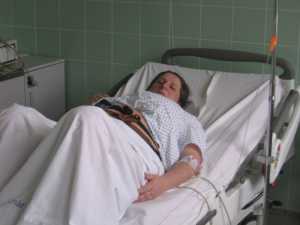 Kathryn A. Lee, RN, CBSM, PhD
Department of Family Health Care Nursing
University of California at San Francisco
San Francisco, California
MedicalResearch.com: What is the background for this study? What are the main findings?
Response: Sleep deprivation can adversely affect health and wellbeing in any patient population.
In pregnancy, adverse outcomes may include preterm birth, longer labor, cesarean birth, and depression.
We found that women with high-risk pregnancies were sleep deprived even prior to hospitalization. Our sample averaged 29 weeks gestation, and half reported getting only between 5 and 6.5 hours of sleep at home before hospital admission. Our sleep hygiene intervention strategies gave them more control over the environment in their hospital room, and they self-reported significantly better sleep than controls. Interestingly, both groups increased their sleep time to almost 7 hours at night, on average, in the hospital before they were discharged home.
(more…)
Kathryn A. Lee, RN, CBSM, PhD
Department of Family Health Care Nursing
University of California at San Francisco
San Francisco, California
MedicalResearch.com: What is the background for this study? What are the main findings?
Response: Sleep deprivation can adversely affect health and wellbeing in any patient population.
In pregnancy, adverse outcomes may include preterm birth, longer labor, cesarean birth, and depression.
We found that women with high-risk pregnancies were sleep deprived even prior to hospitalization. Our sample averaged 29 weeks gestation, and half reported getting only between 5 and 6.5 hours of sleep at home before hospital admission. Our sleep hygiene intervention strategies gave them more control over the environment in their hospital room, and they self-reported significantly better sleep than controls. Interestingly, both groups increased their sleep time to almost 7 hours at night, on average, in the hospital before they were discharged home.
(more…)
Author Interviews, Pediatrics, Sleep Disorders, Technology, Weight Research / 13.12.2017
Parents Encouraged To Keep Screen Devices Out Of Kids’ Bedrooms At Night
MedicalResearch.com Interview with:
 Dr. Marsha Novick, MD
Associate professor of pediatrics and family and community medicine,
Penn State College of Medicine
MedicalResearch.com: What is the background for this study? What are the main findings?
Response: The results of this study solidify some well-established data concerning childhood obesity – namely that children who watch more television and have a more sedentary lifestyle are more likely to have an overweight or obese BMI compared with those who are more active. The survey results highlight some associations between increased technology use and difficulty with sleep quantity in children and adolescents.
The data suggest:
Dr. Marsha Novick, MD
Associate professor of pediatrics and family and community medicine,
Penn State College of Medicine
MedicalResearch.com: What is the background for this study? What are the main findings?
Response: The results of this study solidify some well-established data concerning childhood obesity – namely that children who watch more television and have a more sedentary lifestyle are more likely to have an overweight or obese BMI compared with those who are more active. The survey results highlight some associations between increased technology use and difficulty with sleep quantity in children and adolescents.
The data suggest:
 Dr. Marsha Novick, MD
Associate professor of pediatrics and family and community medicine,
Penn State College of Medicine
MedicalResearch.com: What is the background for this study? What are the main findings?
Response: The results of this study solidify some well-established data concerning childhood obesity – namely that children who watch more television and have a more sedentary lifestyle are more likely to have an overweight or obese BMI compared with those who are more active. The survey results highlight some associations between increased technology use and difficulty with sleep quantity in children and adolescents.
The data suggest:
Dr. Marsha Novick, MD
Associate professor of pediatrics and family and community medicine,
Penn State College of Medicine
MedicalResearch.com: What is the background for this study? What are the main findings?
Response: The results of this study solidify some well-established data concerning childhood obesity – namely that children who watch more television and have a more sedentary lifestyle are more likely to have an overweight or obese BMI compared with those who are more active. The survey results highlight some associations between increased technology use and difficulty with sleep quantity in children and adolescents.
The data suggest:
- Increased technology use at bedtime, namely television, cell phones, video games and computers, is associated with a decrease in the amount of sleep children are getting. These children were more likely to be tired in the morning and less likely to eat breakfast.
- Specifically, children who reported watching TV or playing video games before bed got an average of 30 minutes less sleep than those who did not, while kids who used their phone or a computer before bed averaged an hour less of sleep than those who did not.
- The data also suggests that children with overweight or obesity were more likely to have trouble falling asleep and trouble staying asleep than their normal BMI counterparts
- When children were reported by their parents to use one form of technology at bedtime, they were more likely to use another form of technology as well.
Alzheimer's - Dementia, Author Interviews, NYU, Obstructive Sleep Apnea / 15.11.2017
Sleep Apnea Increases Amyloid Load In Brain, A Hallmark of Alzheimer’s Disease
MedicalResearch.com Interview with:
Ricardo S Osorio MD
Center for Brain Health
Department of Psychiatry
Center of Excellence on Brain Aging
NYU Langone Medical Center
New York, NY 10016, USA
MedicalResearch.com: What is the background for this study? What are the main findings?
Response: This was a study that was performed in a group of healthy normal elderly from the community that volunteered for studies on memory and aging.
The main findings were that sleep apnea was very common, in almost all cases undiagnosed, and that it was associated with a longitudinal increase in amyloid burden which is considered one of the hallmark lesions of Alzheimer's disease
(more…)
Author Interviews, Menopause, Obstructive Sleep Apnea / 09.11.2017
Women With Severe Hot Flashes At Higher Risk of Obstructive Sleep Apnea
MedicalResearch.com Interview with:
Stephanie S. Faubion, MD, FACP, NCMP, IF
Director, Executive and International Medicine
Director, Office of Women’s Health
Associate Professor of Medicine
Division of General Internal Medicine
MedicalResearch.com: What is the background for this study? What are the main findings?
Response: The Data Registry on Experiences of Aging, Menopause and Sexuality (DREAMS) was used for this study investigating the association between vasomotor symptoms (hot flashes and night sweats) and risk for obstructive sleep apnea, a common and underdiagnosed sleep disorder in women which is associated with increased cardiovascular risk.
We found that Women who had severe or very severe hot flashes or night sweats were more likely to be at increased risk for obstructive sleep apnea. This association held even after adjusting for age, body mass index, smoking and hypertension, such that the odds of women having intermediate /high risk for obstructive sleep apnea were 1.87 times higher for those with severe/very severe hot flashes/night sweats compared to those with less severe symptoms. We decided to analyze the group of women with normal body mass index, and indeed, this finding was still significant in the lean group of women.
(more…)
Author Interviews, Insomnia, Kidney Disease / 04.11.2017
Chronic Insomnia Associated With Higher Risk of End Stage Kidney Disease and Mortality
MedicalResearch.com Interview with:
Dr. Jun Ling (Lucy) Lu, MD, CCRP
Senior Clinical Research Coordinator in the Department of Medicine
Csaba P Kovesdy MD FASN
Fred Hatch Professor of Medicine
Director, Clinical Outcomes and Clinical Trials Program
Division of Nephrology, University of Tennessee Health Science Center
Nephrology Section Chief, Memphis VA Medical Center
Memphis TN, 38163
MedicalResearch.com: What is the background for this study? What are the main findings?
Response: Around one third of the world’s population suffers from insomnia. Previous studies showed that sleep disorders affect the hypothalamic–pituitary–adrenal axis and the sympatho-adrenal system, which may cause abnormalities in several organ systems and pathways causing metabolic or cardiovascular abnormalities. However, there is inadequate evidence of an association between chronic insomnia and adverse renal outcomes.
After examining 938,473 US veterans (4.4% of them had chronic insomnia) with baseline estimated eGFR >60 ml/min/1.73m2, we found that chronic insomnia is associated with a 43% higher risk of all-cause mortality, a 2.5-fold higher incidence of eGFR ≤45ml/min/1.73m2, a 2.3-fold higher ESRD risk, and with rapid loss of kidney function.
(more…)
Author Interviews, Education, Pediatrics, Sleep Disorders / 12.10.2017
Starting School Before 8:30 AM Associated With More Anxiety and Depression in Adolescents
MedicalResearch.com Interview with:
Jack Peltz, Ph.D.
Clinical assistant professor in Psychiatry
Rochester Medical Center
MedicalResearch.com: What is the background for this study? What are the main findings?
Response: Approximately 90% of high-school aged adolescents get either
insufficient sleep during school nights or barely meet the required
amount of sleep (ie, 8–10 hours) expected for healthy functioning.(1)
In fact, sleep problems and insufficient sleep are so pervasive for
adolescents that they could be considered an epidemic due to their
adverse impact on adolescent mental and physical health.(2–5)
As a result,addressing insufficient adolescent sleep represents a critical
point of study and intervention. The growing body of evidence suggests
that later school start times (SST), 8:30 AM or later as recommended
by the American Academy of Pediatricians,6 convey
multiple benefits on adolescents, including improved sleep, better
mental and physical health, and improved academic outcomes.(7–10)
This research, however, has focused on the direct effects of delaying
school start times, or specifically how moving SST back directly predicts changes
in an outcome (eg, mental health, academic achievement). This
type of analysis precludes examining the important role that SST
might play as a condition or context under which other sleeprelated
processes take place. For instance, earlier school start times might exacerbate
the impact of sleep-related processes on adolescent behavioral
health outcomes. Thus, incorporating school start times as a larger contextual variable
that might moderate models of sleep and adolescent functioning
represents a gap in the literature and a unique opportunity to advance
conceptual models. Accordingly, the current study examines
the moderating role of school start times on the associations between sleep hygiene,
sleep quality, and mental health.
(more…)
Author Interviews, CDC, Menopause, Sleep Disorders / 02.10.2017
Half of Menopausal Women Report Getting Insufficient Quality Sleep
MedicalResearch.com Interview with:
 Dr. Anjel Vahratian PhD MPH
Maternal and Child Health Epidemiologist
Branch Chief at the National Center For Health Statistics
Centers for Disease Control and Prevention
MedicalResearch.com: Why did you conduct this study?
Response: Our research focuses on the health of women as they age and transition from the childbearing period. During this time, women may be at increased risk for chronic health conditions such as diabetes and cardiovascular disease.
As insufficient sleep is a modifiable behavior that is associated with these chronic health conditions, we wanted to examine how sleep duration and quality varies by menopausal status.
(more…)
Dr. Anjel Vahratian PhD MPH
Maternal and Child Health Epidemiologist
Branch Chief at the National Center For Health Statistics
Centers for Disease Control and Prevention
MedicalResearch.com: Why did you conduct this study?
Response: Our research focuses on the health of women as they age and transition from the childbearing period. During this time, women may be at increased risk for chronic health conditions such as diabetes and cardiovascular disease.
As insufficient sleep is a modifiable behavior that is associated with these chronic health conditions, we wanted to examine how sleep duration and quality varies by menopausal status.
(more…)
 Dr. Anjel Vahratian PhD MPH
Maternal and Child Health Epidemiologist
Branch Chief at the National Center For Health Statistics
Centers for Disease Control and Prevention
MedicalResearch.com: Why did you conduct this study?
Response: Our research focuses on the health of women as they age and transition from the childbearing period. During this time, women may be at increased risk for chronic health conditions such as diabetes and cardiovascular disease.
As insufficient sleep is a modifiable behavior that is associated with these chronic health conditions, we wanted to examine how sleep duration and quality varies by menopausal status.
(more…)
Dr. Anjel Vahratian PhD MPH
Maternal and Child Health Epidemiologist
Branch Chief at the National Center For Health Statistics
Centers for Disease Control and Prevention
MedicalResearch.com: Why did you conduct this study?
Response: Our research focuses on the health of women as they age and transition from the childbearing period. During this time, women may be at increased risk for chronic health conditions such as diabetes and cardiovascular disease.
As insufficient sleep is a modifiable behavior that is associated with these chronic health conditions, we wanted to examine how sleep duration and quality varies by menopausal status.
(more…)
Author Interviews, Cognitive Issues, JAMA, Sleep Disorders / 30.08.2017
Sleep-Disordered Breathing Associated With Increased Risk of Cognitive Impairment
MedicalResearch.com Interview with:
Yue Leng, M.Phil, MD, PhD
Postdoctoral Research Fellow
Department of Psychiatry,
University of California, San Francisco
SFVAMC
MedicalResearch.com: What is the background for this study? What are the main findings?
Response: Sleep-disordered breathing (SDB) is a very common but treatable condition in older adults. Recent evidence has suggested a link between SDB and cognitive decline in the elderly, but previous studies have been conflicting and have used different methods to examine SDB or cognition. Therefore, it is difficult to draw conclusion on the consistency of this association based on each individual study. Moreover, because each study has reported on specific domains using different scales, it is unclear if Sleep-disordered breathing has differential effects on cognitive domains.
The current study is the first to quantitively synthesize all published population-based studies, which covers a total of over 4 million adults, and concluded that people with Sleep-disordered breathing were 26% more likely to develop cognitive impairment than those without SDB. They also had slightly worse performance in executive function but not in global cognition or memory. (more…)







